For the Intellectually Rigorous and Curious: Berggruen Fellows Publish Ten Books in Time for a Transformational 2020
Berggruen Institute Fellows are building a legacy of ground-breaking research to study the great transformations affecting humanity with nearly 25 books published since the program commenced in 2015. Whether you’re setting your 2020 reading agenda or looking to outpace your once innovative but now mainstream book review list, Berggruen Institute Fellows have published a timely and provocative, ideas-forward selection of books throughout 2019. Recent works delve into empathy centered humanism, the relationship between biology and capitalism, alternative global political philosophies, Confucian virtue politics, and the philosophy of place.
Founded in 2010 by philanthropist and investor Nicolas Berggruen, the Berggruen Institute mission is to develop foundational ideas and provide critical analysis that will shape political, economic and social institutions for the 21st century. Since its inception, the Berggruen Institute has launched the global Berggruen Fellows Program, the 21st Century Council, the Council for the Future of Europe, Berggruen China Center, the Think Long Committee for California, and the signature Berggruen Prize.
If you are an independent scholar or academically affiliated with a university, the Berggruen Institute has opened its online applications for Berggruen Fellowships via an online portal. Learn more about the ways in which Berggruen Fellows research the transformative ideas shaping our society and their broader impact on humanity while promoting both academic and cultural exchange globally.
Below is a list of the award-winning books published by Berggruen Fellows in 2019.
Tongdong Bai. Against Political Equality: The Confucian Case. Princeton University Press.
What might a viable political alternative to liberal democracy look like? In Against Political Equality, Tongdong Bai offers a possibility inspired by Confucian ideas. Bai argues that domestic governance influenced by Confucianism can embrace the liberal aspects of democracy along with the democratic ideas of equal opportunities and governmental accountability to the people. Confucianism would give more political decision-making power to those with the moral, practical, and intellectual capabilities of caring for the people. While most democratic thinkers still focus on strengthening equality to cure the ills of democracy, the proposed hybrid regime—made up of Confucian-inspired meritocratic characteristics combined with democratic elements and a quasi-liberal system of laws and rights—recognizes that egalitarian qualities sometimes conflict with good governance and the protection of liberties and defends liberal aspects by restricting democratic ones. Bai applies his views to the international realm by supporting a hierarchical order based on how humane each state is toward its own and other peoples, and on the principle of international interventions whereby humane responsibilities override sovereignty.
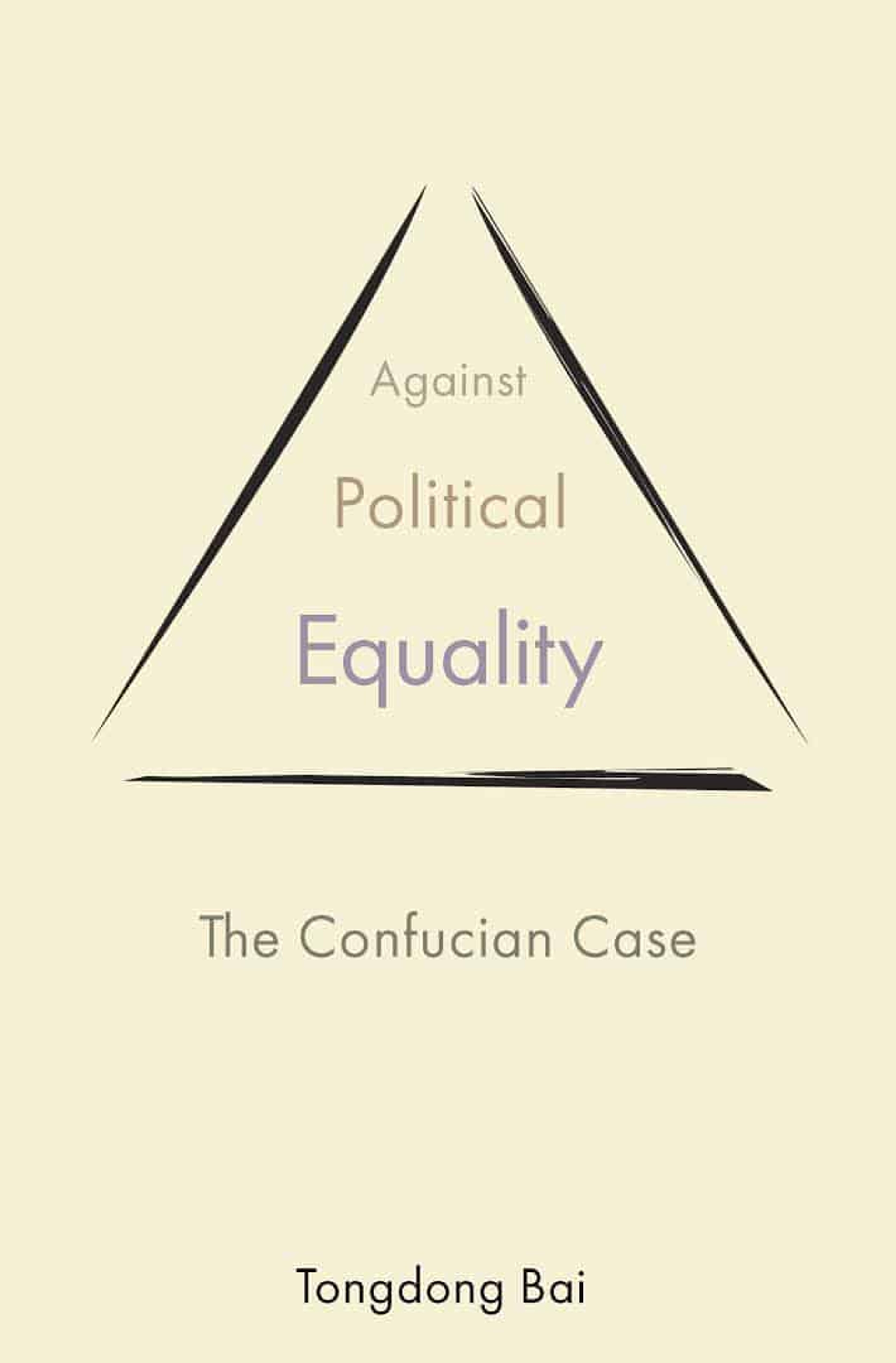
Exploring the deficiencies posed by many liberal democracies, Against Political Equality presents a novel Confucian-engendered alternative for solving today’s political problems. Tongdong Bai is the Dongfang Professor of Philosophy at Fudan University in Shanghai and a Global Professor of Law at New York University School of Law. He is also the author of China: The Political Philosophy of the Middle Kingdom.
(Publisher’s Discount: 30% off with code BAI1: https://press.princeton.edu/books/hardcover/9780691195995/against-political-equality)
Josh Berson. The Meat Question: Animals, Humans, and the Deep History of Food. MIT Press.
Humans are eating more meat than ever. Despite ubiquitous Sweetgreen franchises and the example set by celebrity vegans, demand for meat is projected to grow at twice the rate of demand for plant-based foods over the next thirty years. Between 1960 and 2010, per capita meat consumption in the developing world more than doubled; in China, meat consumption grew ninefold. It has even been claimed that meat made us human—that our disproportionately large human brains evolved because our early human ancestors ate meat. In The Meat Question: Animals, Humans, and the Deep History of Food, Josh Berson argues that not only did meat not make us human, but the contemporary increase in demand for meat is driven as much by economic insecurity as by affluence. Considering the full sweep of meat’s history, Berson concludes provocatively that the future is not necessarily carnivorous.
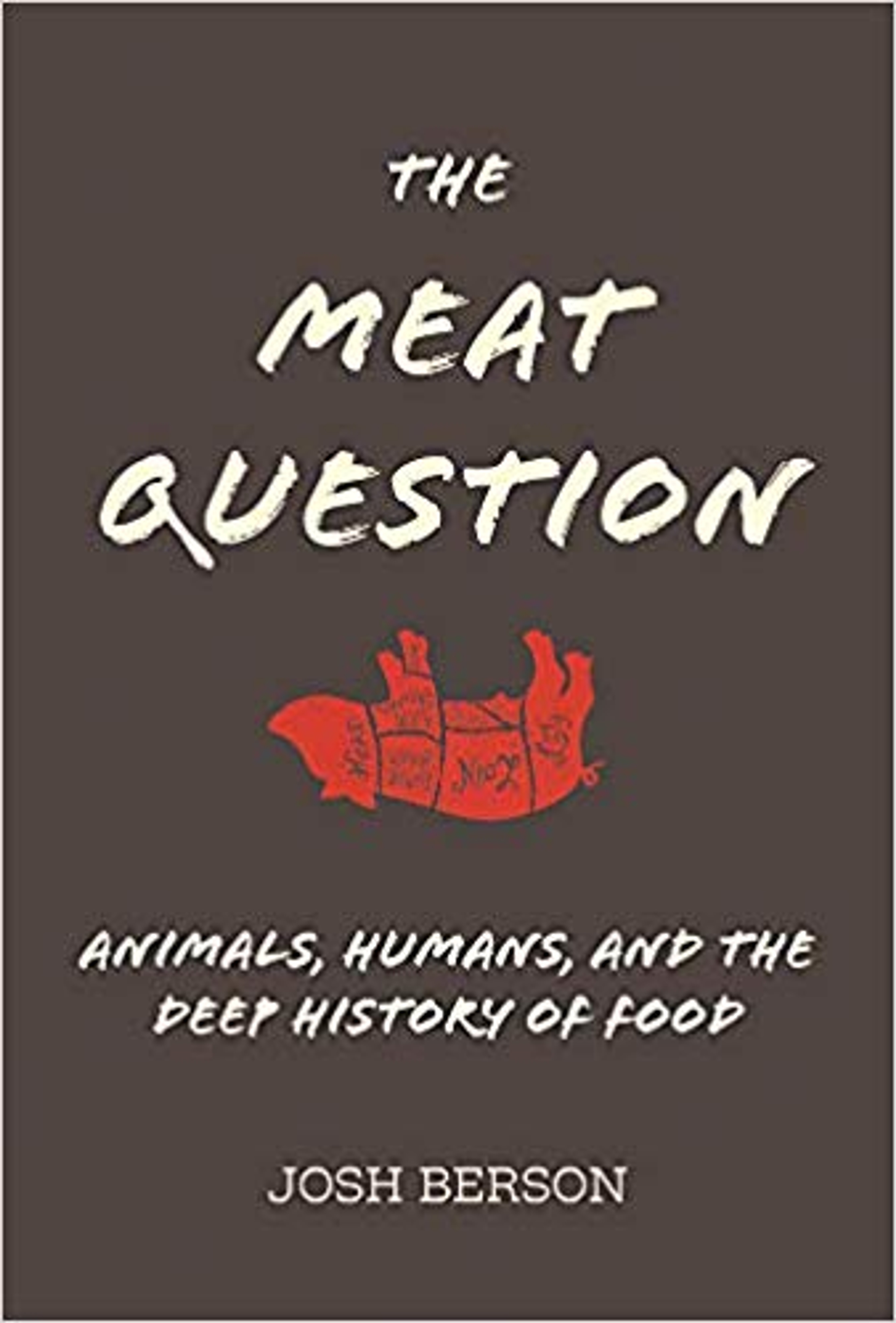
Berson, an anthropologist and historian, argues that we have the relationship between biology and capitalism backward. We may associate meat-eating with wealth, but in fact, meat-eating is a sign of poverty; cheap meat—hunger killing, easy to prepare, eaten on the go—enables a capitalism defined by inequality. To answer the meat question, says Berson, we need to think about meat-eating in a way that goes beyond Paleo diets and PETA protests to address the deeply entwined economic and political lives of humans and animals past, present, and future.
Josh Berson is an independent social scientist. He has held research appointments at the Berggruen Institute and the Max Planck Institute for Human Cognitive and Brain Sciences, among other places. He is the author of Computable Bodies: Instrumented Life and the Human Somatic Niche.
(Publisher’s Discount: 30% off with code MITPR: https://mitpress.mit.edu/books/meat-question)
Sam Fleischacker. Being Me Being You: Adam Smith and Empathy. University of Chicago Press.
We’re torn, today, over what to think about empathy. On the one hand, everyone talks about the need for it; there seems to be a new book on it every week; and we hold it up as the key to bridging divides between hostile groups. On the other hand, we say, “You can’t know what it’s like to be me,” and we insist on the importance of perspective and difference. Some psychologists add that empathy reinforces our divisions into closed, xenophobic tribes, and directs us to help only individuals we see or whose stories we know, rather than doing things that would benefit larger numbers of people.
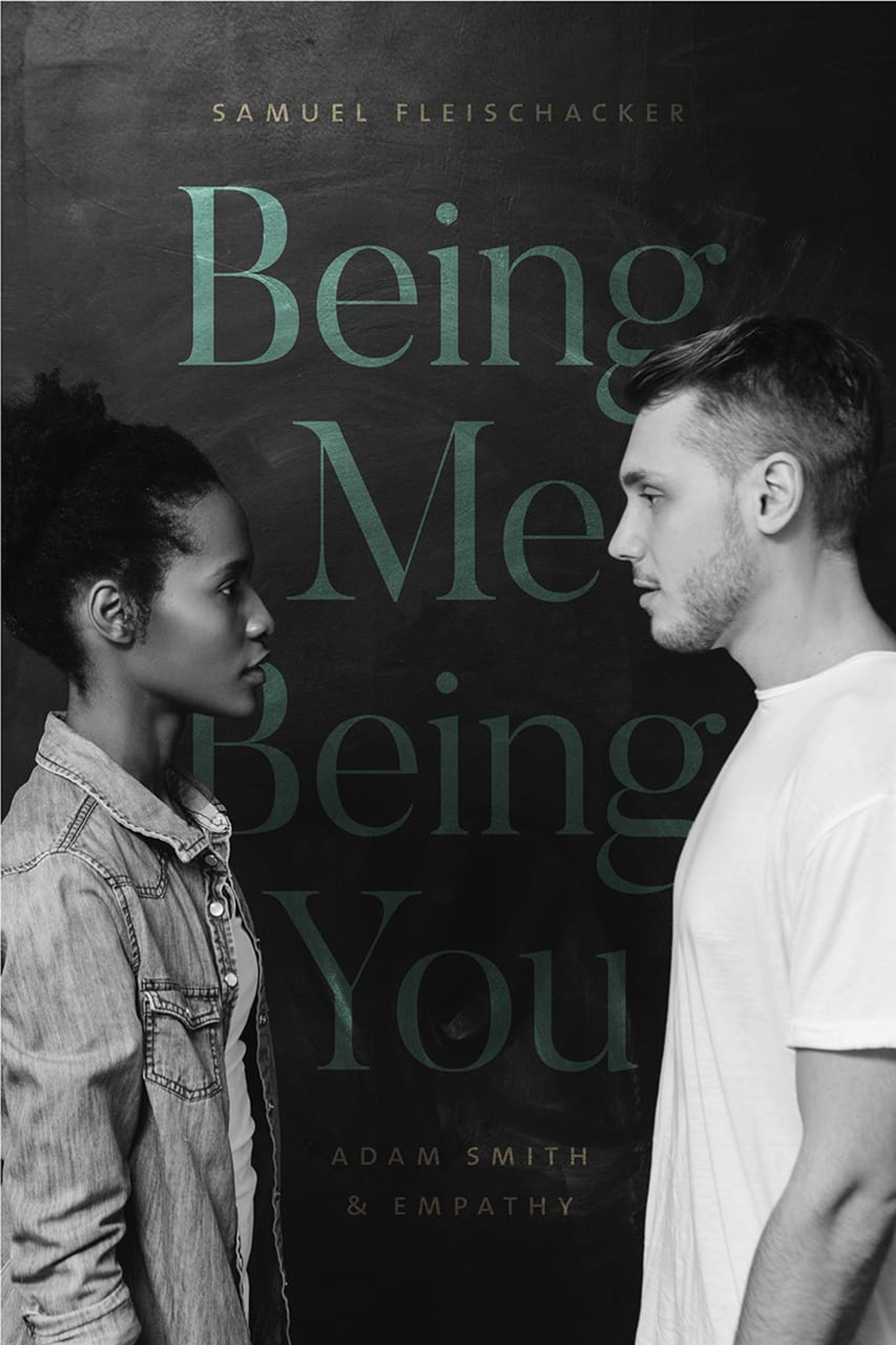
So, which is it? Is empathy essential to cosmopolitanism, and a valuable moral instrument, or does it blur the differences among people, reinforce ethnocentrism, and distract us from fair and effective moral action? Being Me Being You argues that the answer to that question depends on what conception of empathy we have. It recommends the “projective” conception of empathy, introduced by the eighteenth-century Scottish philosopher and economist Adam Smith, as against the “contagious” conception of empathy to be found in the writings of his contemporary and friend David Hume. Smith developed a conception of empathy by which it is not merely an instrument for moral action, but a key component of what it is to be human. For Smith, however, empathy is also crucial to our having distinctive perspectives — to what today we call “difference”; empathy enables our common humanity and our distinctiveness to come together. Relatedly, Smith showed how it could help us combine our cosmopolitan aspirations with our local loyalties, and how it could make for public policies that are sensitive to each person’s different needs and aspirations. In all these ways, Smith’s empathy-centered humanism remains invaluable today.
Chunsong Gan. A Concise Reader of Chinese Culture. China Social Sciences Press.
Chunsong Gan uses the mutual interactions between Chinese and Western culture as a point of departure in order to concisely introduce the origins and evolution of Chinese culture at the aspects of constitution, thinking, values and atheistic.
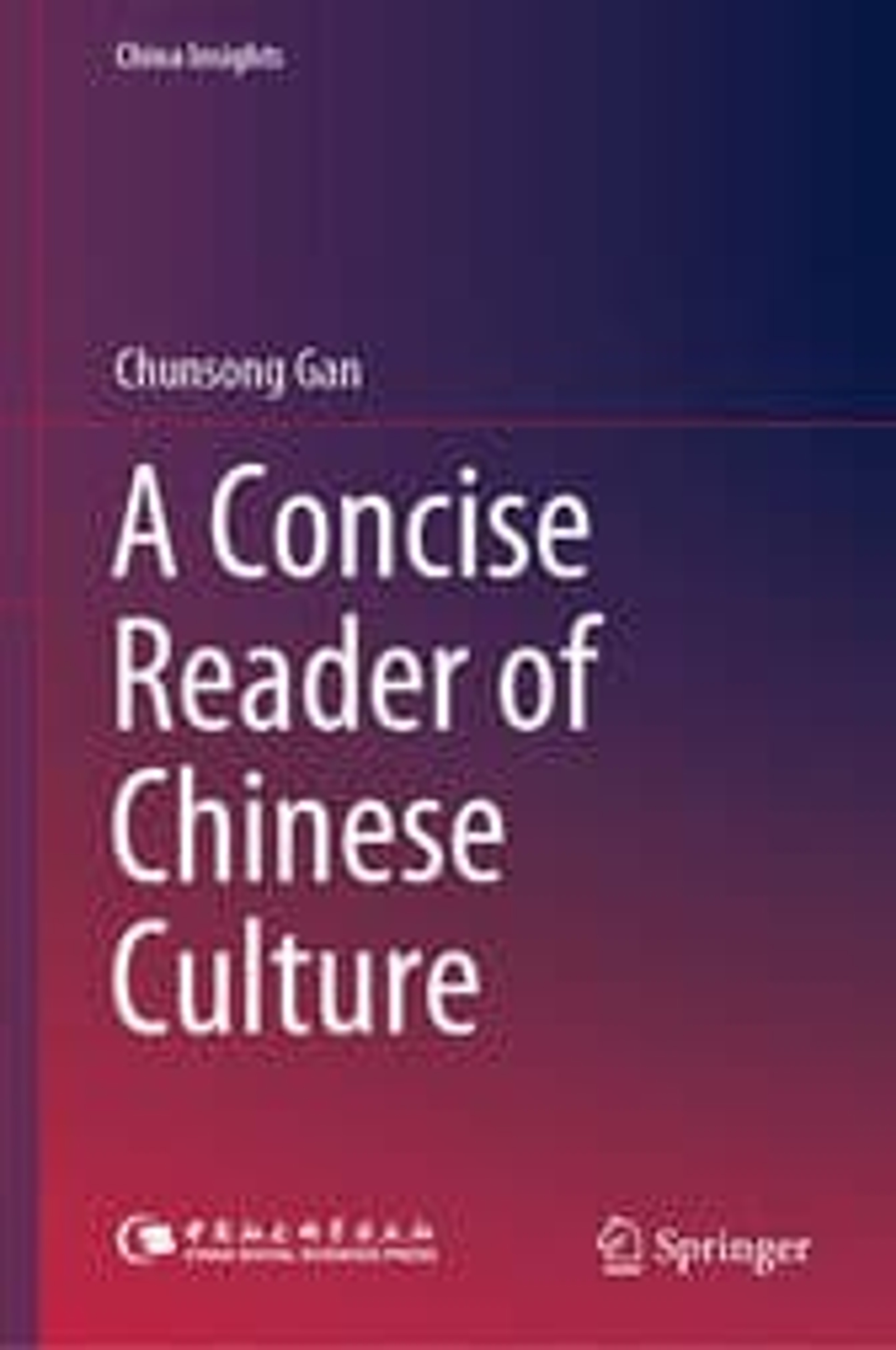
This book also analyzes utensil culture, constitution culture and ideology culture, which were perfected by absorbing classic arguments from academia. As such, the book offers an essential guide to understanding the development, civilization and key ideologies in Chinese history, and will thus help to promote Chinese culture and increase cultural awareness.
Eliza Griswold. Amity and Prosperity: One Family and the Fracturing of America. Maximillan.
Griswold is the Winner of the 2019 Pulitzer Prize for General Nonfiction for Amity and Prosperity. Griswold tells the story of the energy boom’s impact on a small town at the edge of Appalachia and one woman’s transformation from a struggling single parent to an unlikely activist. Stacey Haney is a local nurse working hard to raise two kids and keep up her small farm when the fracking boom comes to her hometown of Amity, Pennsylvania. Intrigued by reports of lucrative natural gas leases in her neighbors’ mailboxes, she strikes a deal with a Texas-based energy company. Soon trucks begin rumbling past her small farm, a fenced-off drill site rises on an adjacent hilltop, and domestic animals and pets start to die. When mysterious sicknesses begin to afflict her children, she appeals to the company for help. Its representatives insist that nothing is wrong.
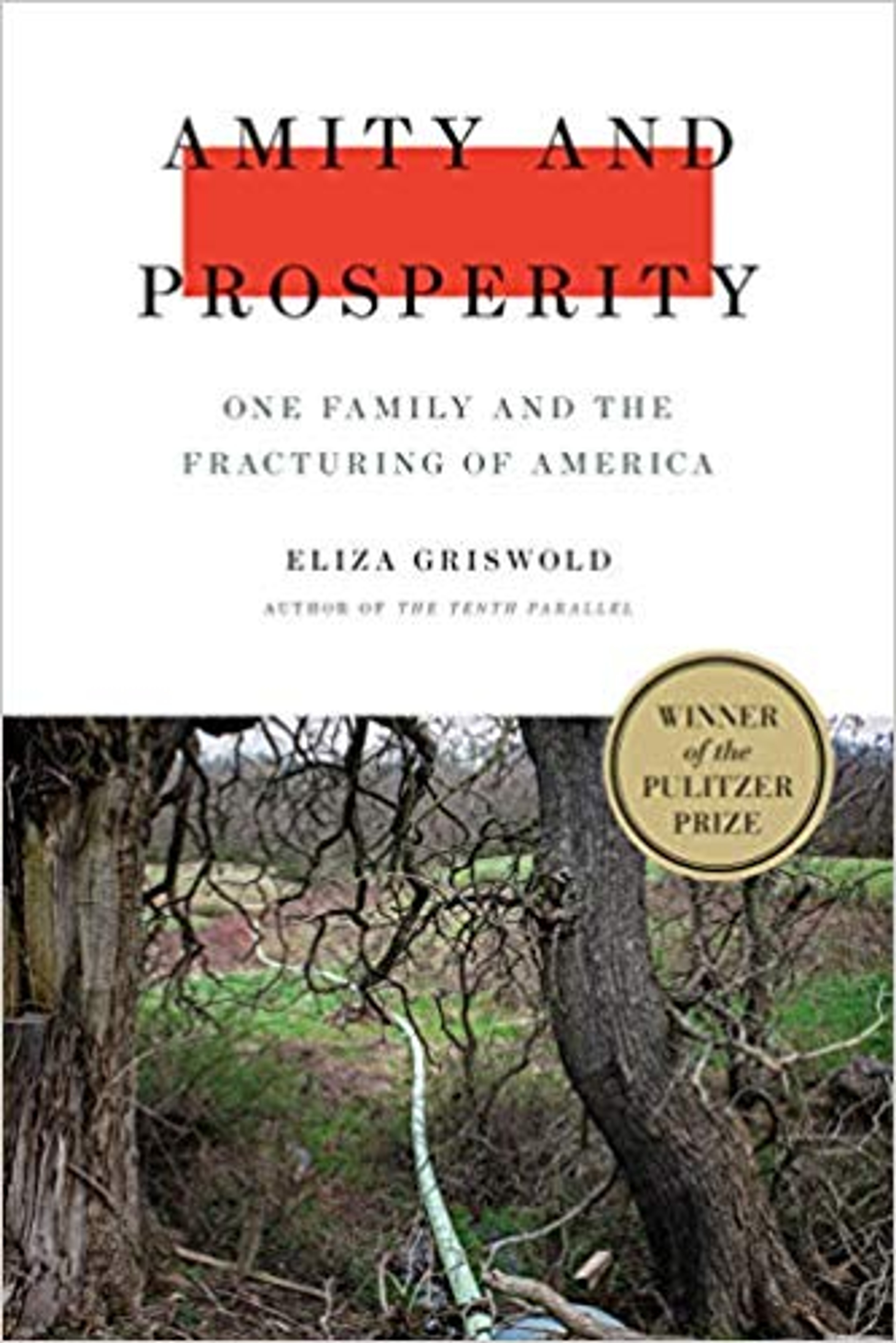
Alarmed by her children’s illnesses, Haney joins with neighbors and a committed husband-and-wife legal team to investigate what’s really in the water and air. Against local opposition, Haney and her allies doggedly pursue their case in court and begin to expose the damage that’s being done to the land her family has lived on for centuries. Soon a community that has long been suspicious of outsiders faces wrenching new questions about who is responsible for their fate, and for redressing it: The faceless corporations that are poisoning the land? The environmentalists who fail to see their economic distress? A federal government that is mandated to protect but fails on the job? Drawing on seven years of immersive reporting, Griswold reveals what happens when an imperiled town faces a crisis of values, and a family wagers everything on an improbable quest for justice.
Peter Hershock & Roger Ames, editors. Philosophies of Place: An Intercultural Conversation. University of Hawaii Press.
Humanity takes up space. Human beings, like many other species, also transform spaces. What is perhaps uniquely human is the disposition to qualitatively transform spaces into places that are charged with distinctive kinds of intergenerational significance. There is a profound, felt difference between a house as domestic space and a home as familial place or between the summit of a mountain one has climbed for the first time and the “same” rock pinnacle celebrated in ancestral narratives.
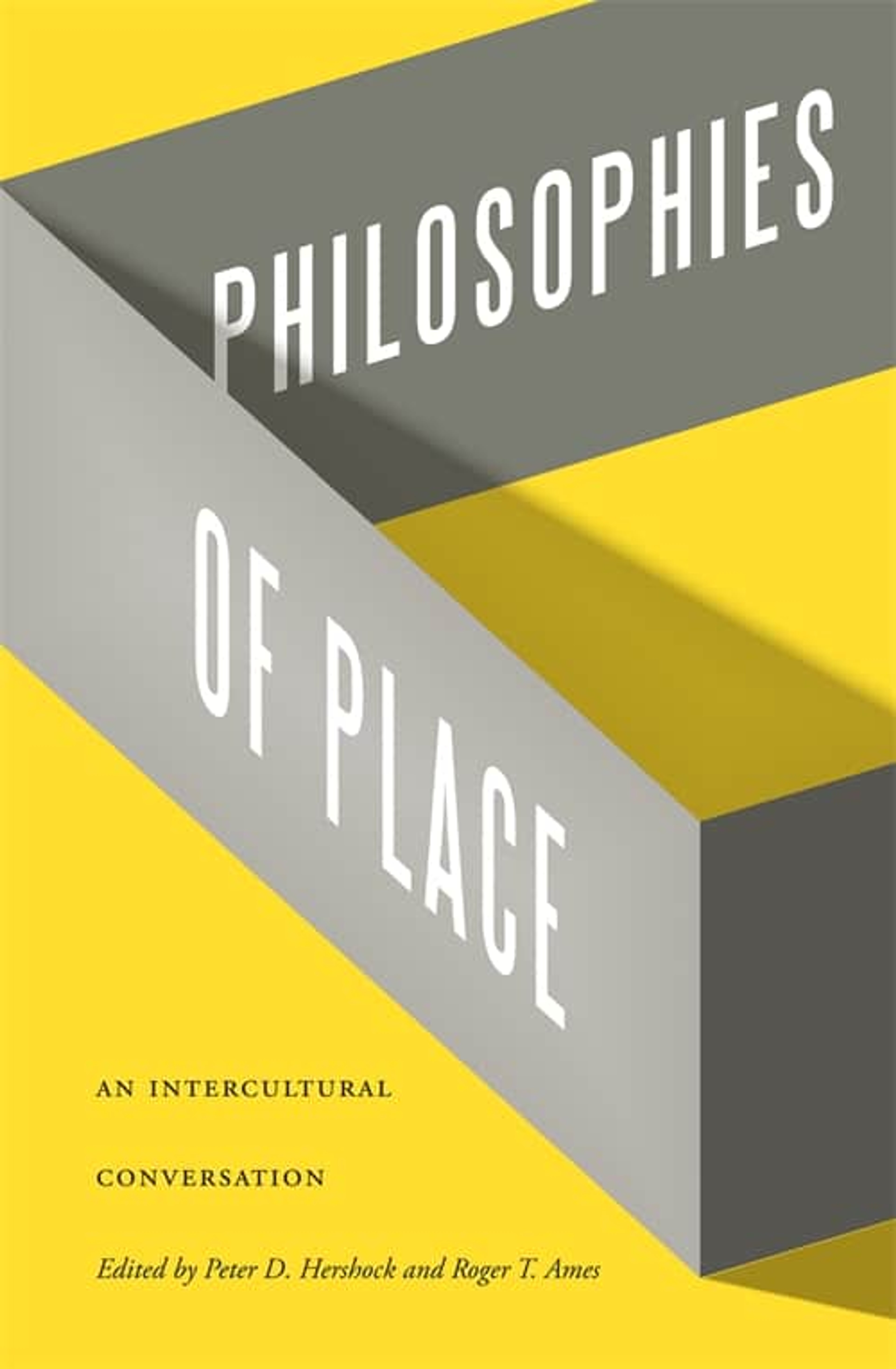
The contributors to this volume draw on resources from Asian, European, and North American traditions of thought to engage in intercultural reflection on the significance of place in philosophy and of the place of philosophy itself in the cultural, social, economic, and political domains of contemporary life. The conversation of place that results explores the meaning of intercultural philosophy, the critical interplay of place and personal identity, the meaning of appropriate emplacement, the shared place of politics and religion, and the nature of the emotionally emplaced body.
Sungmoon Kim (February 2020). Theorizing Confucian Virtue Politics: The Political Philosophy of Mencius and Xunzi. Cambridge University Press.
Surprisingly little is known about what ancient Confucian thinkers struggled with in their own social and political contexts and how these struggles contributed to the establishment and further development of classical Confucian political theory. Leading scholar of comparative political theory, Sungmoon Kim offers a systematic philosophical account of the political theories of Mencius and Xunzi, investigating both their agreements and disagreements as the champions of the Confucian Way against the backdrop of the prevailing realpolitik of the late Warring States period. Together, they contributed to the formation of Confucian virtue politics, in which concerns about political order and stability and concerns about moral character and moral enhancement are deeply intertwined. By presenting their political philosophies in terms of constitutionalism, Kim shows how they each developed the ability to authorize the ruler’s legitimate use of power in domestic and interstate politics in ways consistent with their distinctive accounts of human nature.
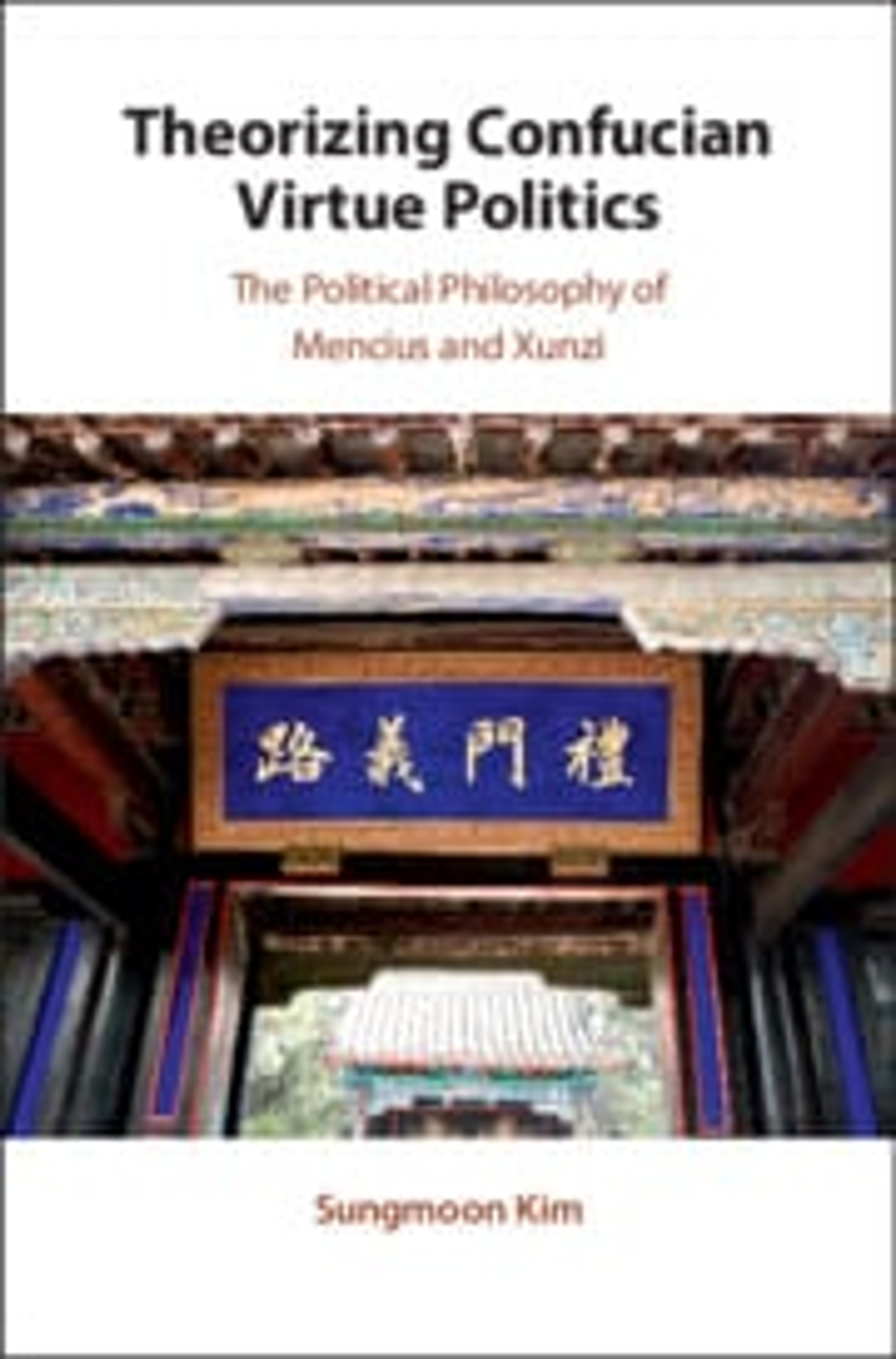
Andrew March. The Caliphate of Man: Popular Sovereignty in Modern Islamic Thought. Harvard University Press.
A political theorist teases out the century-old ideological transformation at the heart of contemporary discourse in Muslim nations undergoing political change. The Arab Spring precipitated a crisis in political Islam. In Egypt Islamists have been crushed. In Turkey they have descended into authoritarianism. In Tunisia they govern but without the label of “political Islam.” Andrew March explores how, before this crisis, Islamists developed a unique theory of popular sovereignty, one that promised to determine the future of democracy in the Middle East.
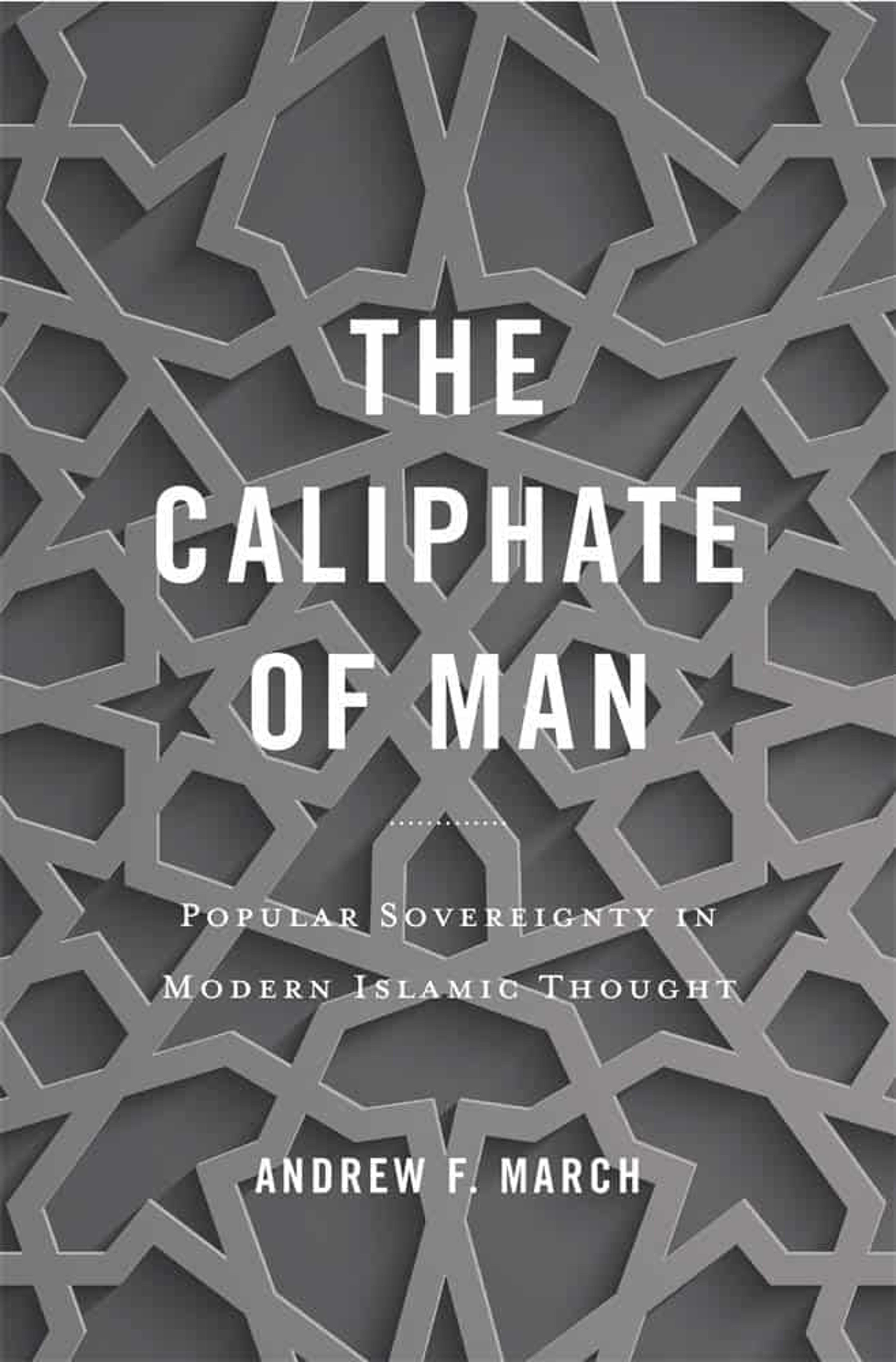
This began with the claim of divine sovereignty, the demand to restore the sharīʿa in modern societies. But prominent theorists of political Islam also advanced another principle, the Quranic notion that God’s authority on earth rests not with sultans or with scholars’ interpretation of written law but with the entirety of the Muslim people, the umma. Drawing on this argument, utopian theorists such as Abū’l-Aʿlā Mawdūdī and Sayyid Quṭb released into the intellectual bloodstream the doctrine of the caliphate of man: while God is sovereign, He has appointed the multitude of believers as His vicegerent. The Caliphate of Man argues that the doctrine of the universal human caliphate underpins a specific democratic theory, a kind of Islamic republic of virtue in which the people have authority over the government and religious leaders. But is this an ideal regime destined to survive only as theory?
Tenzin Priyadarshi. Running Towards Mystery. Random House.
“Enlightened beings only appear to come and go, making themselves available for a time in this faltering world, but in reality they are never gone. Enlightened beings are always present here and now if you truly yearn to see them…”
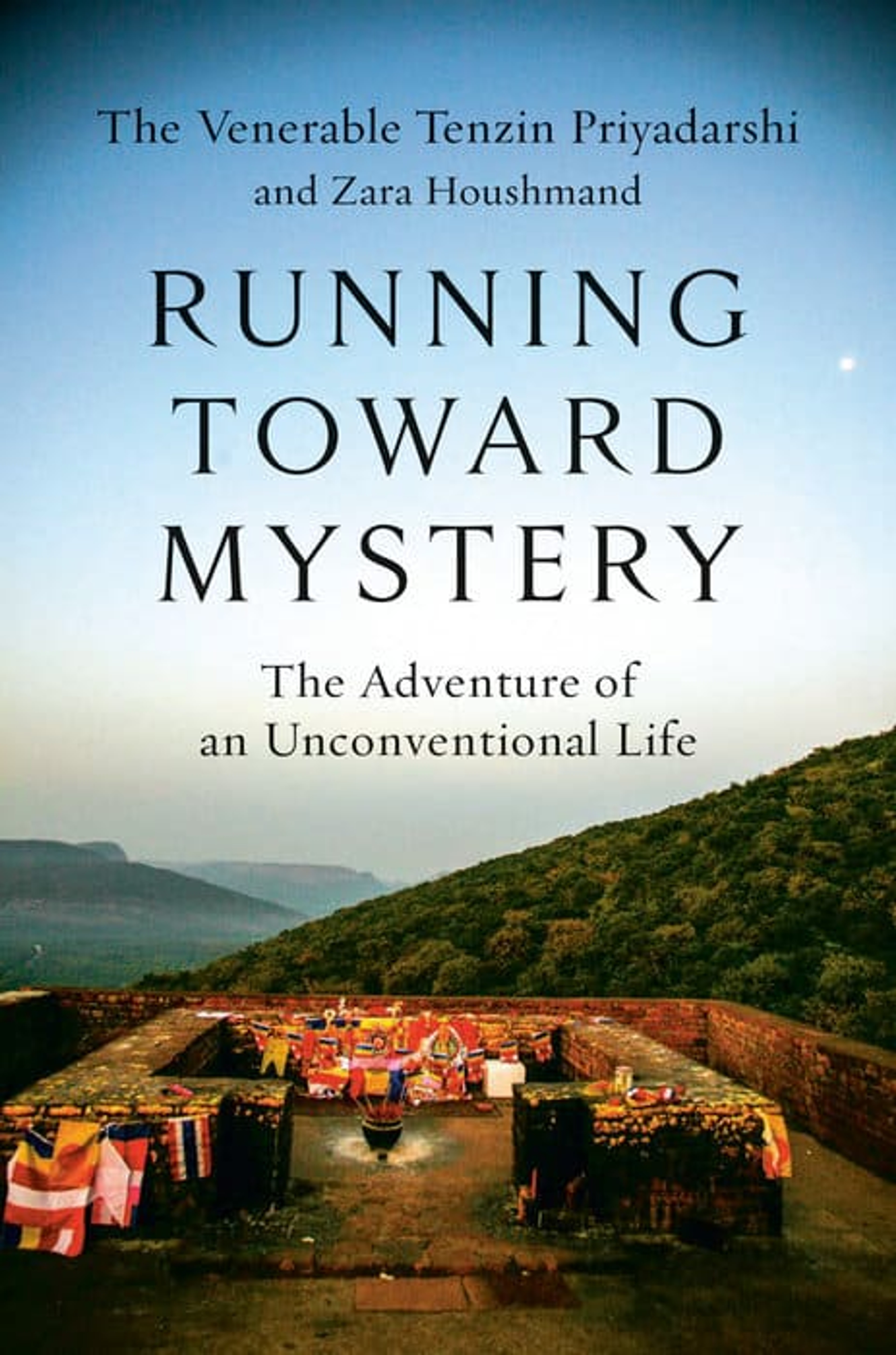
Born in India to a prominent Hindu Brahmin family, the Venerable Tenzin Priyadarshi was only six years old when he began having visions of a mysterious mountain peak, and of men with shaved heads wearing robes the color of sunset. “It was as vivid as if I were watching a scene from life,” he writes. And so at the age of ten, he ran away from boarding school to find this place–taking a train to the end of the line and then boarding a bus to wherever it went. Strangely enough, he ended up at a Buddhist monastery that was the place of his dreams. His frantic parents sent scouts to find him and, after two weeks, located him and brought him home. But he continued to have visions and feel a strong pull to a spiritual life in a tradition that he had never heard of as a child. Today, he is a revered monk and teacher as well as President & CEO of The Dalai Lama Center for Ethics and Transformative Values at the Massachusetts Institute of Technology, where he works to build bridges among communities and religions. He is also director of the Ethics Initiative at the MIT Media Lab.
Running Toward Mystery is The Venerable Tenzin Priyadarshi’s profound account of his lifelong journey as a seeker. At its heart is a story of striving for the unseen, the vital importance of mentors in that search, and of the many remarkable teachers he met along the way, among them the Dalai Lama, Desmond Tutu, and Mother Teresa. “Teachers come and go on their own schedule,” Priyadarshi writes. “I clearly wasn’t in charge of the timetable and it wasn’t my place to specify how a teacher should teach…” But arrive they did, at the right time, in the right way, to impart the lessons that shaped a life of seeking, devotion, and deep human connection across all barriers. Running Toward Mystery is at once the bracing and beautiful story of a singular life compelled to contemplation, and the riveting narrative of just how exciting that journey can be.
Tingyang Zhao. Redefining A Philosophy for World Governance. Palgrave Macmillan.
This Key Concepts pivot discusses the contemporary relevance of the ancient Chinese concept of Tianxia or ‘All-Under-Heaven’ and argues the case for a new global political philosophy. ‘All-under-heaven’ is a conceptualization of the world as the composition of three realms: the physical, psychological and political, which places inclusivity and harmony at the heart of a global world view above other considerations, transcending the notion of nation state. In a highly interconnected and globalized world, the idea of Tianxia can offer a new 21st century vision of international relations and world order, based on a harmonized global organization defined by the “all-inclusiveness principle.” Promoting the ontology of co-existence and relational rationality hand in hand with rational risk aversion in a globalized world, this pivot makes the case that Tianxia could offer a new vision for contemporary world order.
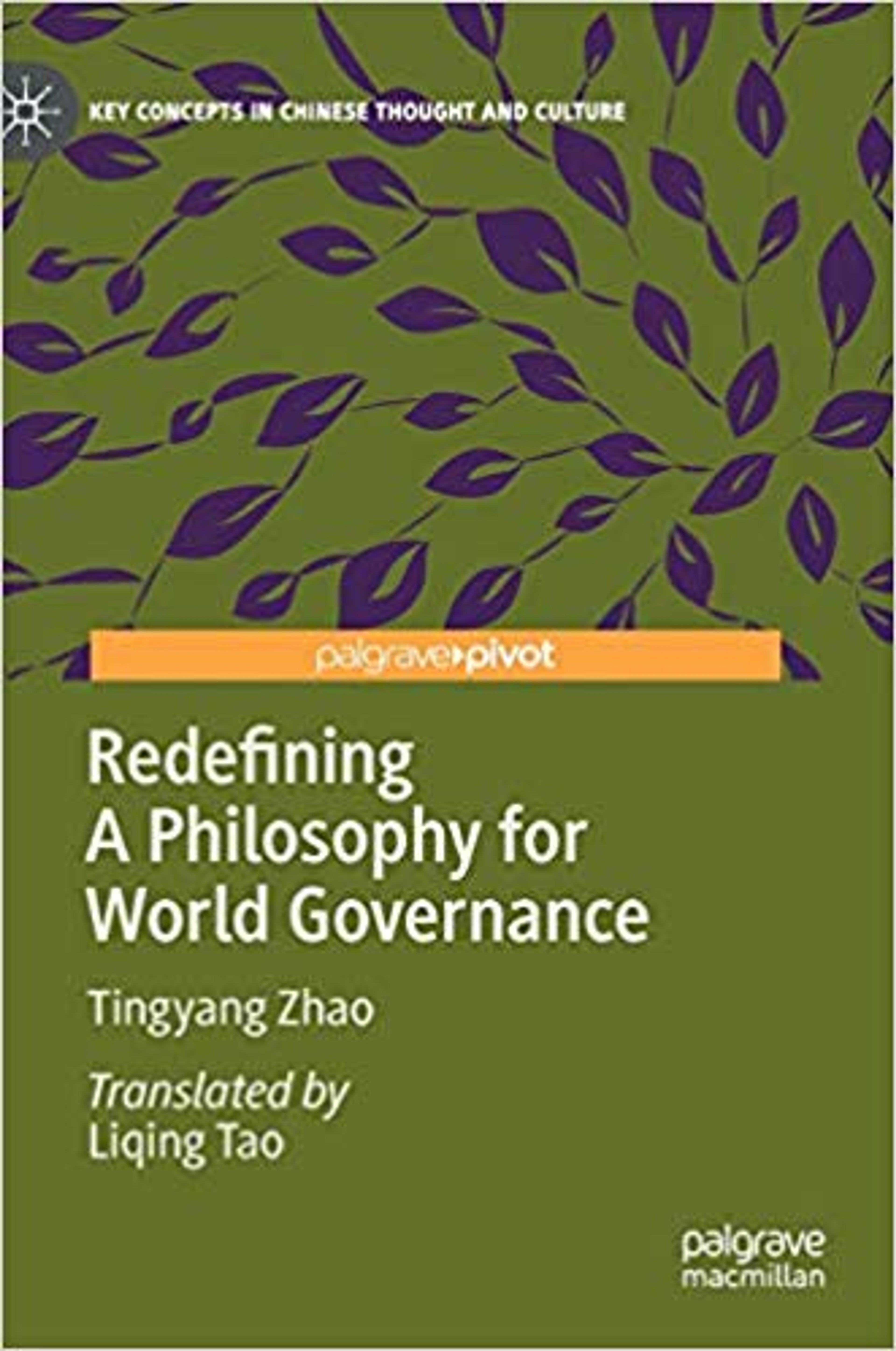
###
About the Berggruen Institute
The Berggruen Institute’s mission is to develop foundational ideas and shape political, economic, and social institutions for the 21st century. Providing critical analysis using an outwardly expansive and purposeful network, we bring together some of the best minds and most authoritative voices from across cultural and political boundaries to explore fundamental questions of our time. Our objective is enduring impact on the progress and direction of societies around the world. To date, projects inaugurated at the Berggruen Institute have helped develop a youth jobs plan for Europe, fostered a more open and constructive dialogue between Chinese leadership and the West, strengthened the ballot initiative process in California, and, included the creation of The WorldPost, a global media platform that brings thought leaders from around the world to share ideas. In addition, the Berggruen Prize, a $1 million award is conferred annually by an independent jury to a thinker whose ideas are shaping human self-understanding to advance humankind.